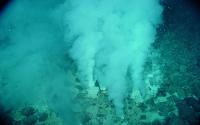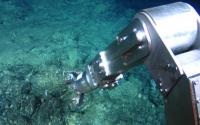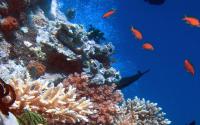Recent News

An ice-free Arctic will not bring more international shipping to Arctic maritime routes to and from China, the world’s largest market, according to a recent study by The Arctic Institute.
[ More ]
The author notes that in contrast to the pessimistic accounts of a pending resource war in the Arctic, "the most significant development in the Arctic today is the ever-increasing level of international cooperation – especially between Russia and the NATO countries."
[ More ]
John Bellinger, former legal advisor on the National Security Council under the Bush administration, argues that the "Senate should approve, and the United States should join, the Law of the Sea Convention, to which 166 countries are already party."
[ More ]
The United Nations Convention on the Law of the Sea—the US military backs it, the oil industry loves it, and Senators Murkowski and Begich support it. Hell, even the environmentalists are behind this piece of legislation. So why won’t Congress ratify this treaty and put this issue to bed?
[ More ]
India has made its first ever claim before the International Seabed Authority (ISA) for the exploration of poly-metallic sulphide from the Mauritius seas.
[ More ]
The author lays out a plan for how the U.S. can help ease tensions in the Arctic, including by improving international cooperation, developing better relations with Russia, and increasing investments in "technologies that enable safe operations and monitor the environment".
[ More ]
A project to dig minerals from the seabed off Papua New Guinea could signal a new era of mining in the world’s most remote and least understood environment, the deep sea. Mining companies are excited, ecologists are worried, and struggling island nations are watching with interest, as Ann Arnold writes.
[ More ]
University at Buffalo researchers are developing a deep-sea Internet that could lead to improvements in tsunami detection, offshore oil and natural gas exploration, surveillance, pollution monitoring, and other activities.
[ More ]
Leading marine biologists have joined a call to partly privatise the oceans' beleaguered biology, in the interests of effective conservation. The kill-or-cure message comes from a "blue-ribbon panel" set up by the World Bank's Global Partnership for Oceans, which aims to come up with effective ways of financing ocean protection.
[ More ]
The depletion of resources on land together with the increase in resource demand and the parallel development in technologies for deep sea exploration have brought the issue of deep-sea mining to the forefront of political, industrial and scientific debate.
[ More ]